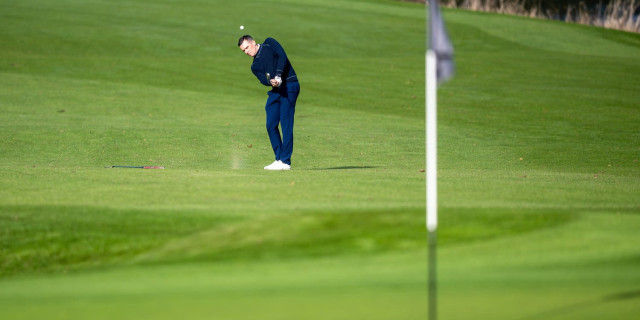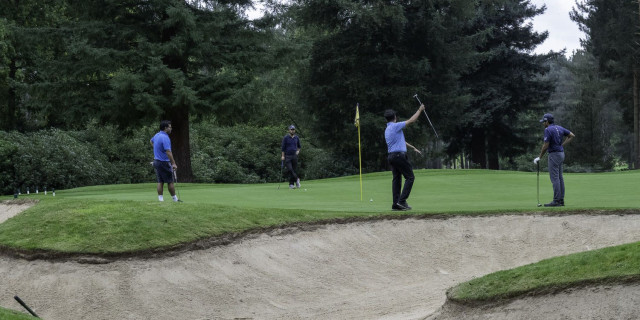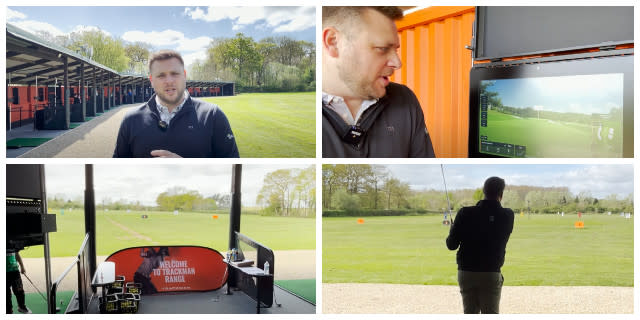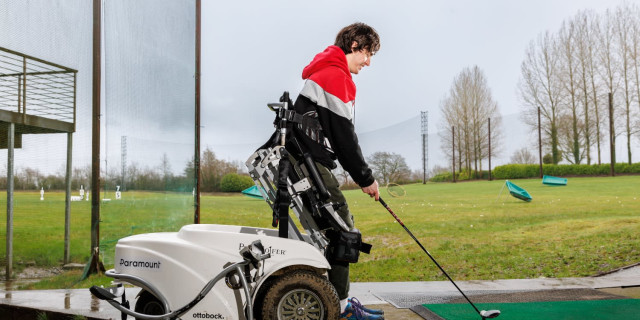
Slow Play Weekly Feature: Golfing Legislation
In the fifth part of our weekly slow play feature, Golfshake speaks to Barry Rhodes, an expert on the rules of golf and author of the book ‘999 Questions on the Rules of Golf.’
Rhodes recently wrote an article on the rules and slow play for Golfshake, and I was keen to ask him further questions and take the exploration of the subject to another level.
The desire to find out more about legislation and slow play was born from Paul O’Neill – member of Westport Golf Club – and his failed proposal to implement ‘Ready to Play.’ Rhodes has been giving presentations and answering questions on the rules of golf for quite some time, and as such, was an ideal candidate to dissect the topic.
Legislative relevance
There are only two rules of golf that bear relevance to the issue of slow play.
The first rule, rule 6-3a, pertains to starting on time and associated penalties, so isn’t directly relevant. The second, however, rule 6-7 – Undue Delay – is extremely applicable. The rule states that:
“The player must play without undue delay and in accordance with the pace of play guidelines that the Committee may establish. Between completion of the hole and playing from the next teeing ground, the player must not unduly delay play.”
Inadequacies
As I read this, it wasn’t much of a surprise that we are having so many issues with slow play. In a parallel to legislation regarding the use of the belly putter, where the rules say the equipment must remain ‘traditional and customary’, it is wholly inadequate. I asked Barry why such vagaries were present, and what constitutes ‘undue’.
Apparantly, there are only two instances cited as examples in the Rules of Golf:
“A player arrives at the green and discovers he has left his putter at the tee. He returns to the tee to retrieve the putter. If this delays play, is the player subject to a penalty? Yes.”
“If a player searches for a lost ball for ten minutes, is he subject to penalty under Rule 6-7 for undue delay? Yes.”
Subjectivity
As Barry points out, the onus is on the respective Committee, as the “uniform Rules of Golf have to be equitable for players of all standards, on every course in the world, no matter what topographical or climatic conditions prevail.”
Be that as it may, it presents lack of definiteness, which in turn causes problems. Firstly, who exactly is going to call the penalty? Monitoring is a clear issue and, as such, the responsibility falls on playing partners. But how many of them will be aware of this ruling, and how many will be prepared to call a penalty and cause potential confrontation over a subjective use of the word ‘undue’?
Furthermore, say a quick golfer has left a club on the previous green, and only realises on the next fairway when he looks in his bag. Should he be penalised? He has adhered perfectly to etiquette throughout the round, done everything he can to combat slow play, yet could be liable for making a simple human error. It seems ridiculous, and really doesn’t address the route of the problem.
Failure to penalise
I went on the question Mr Rhodes on why people aren’t penalised for slow play at golf clubs. As I suspected, the issue comes down to impossibility of monitoring all players at all times.
“The problem that most clubs face is that it is impossible for them to monitor players,” he said.
“Even when clubs insist on start and finish times being recorded, there will be excuses: “the group ahead held us up all the way round; “we took a lot of time searching for balls in autumn leaves.”
Recognition of slow play
Outside of competitions, as well, who is going to legitimately accept a penalty brought on them by the club or a playing partner? In my view, one of the main problems is that slow players do not recognise that they are slow. I asked about the issue.
“This is a significant part of the problem,” he affirmed. “No matter who you talk to in a slow group they will always blame the other players in their group.” The constant through all our slow play features has been the need for everyday golfers to draw attention to the problem. If someone is playing slow golf, let them know tactfully, and explain how they can speed up. The trouble is that most of us draw inspiration from touring professionals, who, according to Mr Rhodes, are “amongst the worst offenders.”
Feasible legislative change?
Naturally, my next question was to ask whether we need a differentiation in slow play legislation between the profession and club game, to which Mr Rhodes responded:
“I am confident that the ruling bodies are highly unlikely to make any differentiation in the rules between profession and amateur players.” So how easy is it to change the Rules of Golf?
“Rules of Golf are under constant review,” he said. “However, changes are only published every four years, most recently being on the 1st January this year. This means the very earliest Ruling Bodies could address the subject of slow play would be January 2016.”
Impact upon ‘ready golf’
‘Ready golf’, by the rules of the game, isn’t illegal, but there are many reasons why it hasn’t seen widespread implementation. Sooner or later, it will lead to a breach of the rules, with players purposefully hanging back to see what their competitor is doing, or a player scoring badly putting first and giving someone else, who is in line for a prize of victory, an indication of the line. I also believe that it can’t be legally uniform.
The rules of golf state that the player with the lowest score tees off first. It simply isn’t practicable to have ‘ready golf’ from the fairway – where it is legal – but not from the tee, where it would breach the rules of golf.
Therefore, it is incredibly unlikely that ‘ready golf’ will be sanctioned. Some will continue to adopt it as a way to speed up play, but others, such as at Paul O’Neill, will testify that it is not always welcomed.
Any variant on the slow play discussion eventually comes back to the same principal: keep up with the group ahead and always be ready to play. Moreover, make sure you tell anyone that you feel is playing slowly to adhere to the principals that you put to practice on the golf course.
More Slow play features:
- Read the part 1 introduction and analysis of the Pro Tours
- Read part 2 focused on Amateur Golf
- Club perspective - Westport Golf Club
- Kwik Golf
Barry is author of the book, ‘999 Questions on the Rules of Golf’ and writes a regular blog of miscellaneous content on the rules of Golf at www.barryrhodes.com
What do you think? post your thoughts and feedback on the Golfshake Forum: https://forum.golfshake.com/
Tags: slow play









